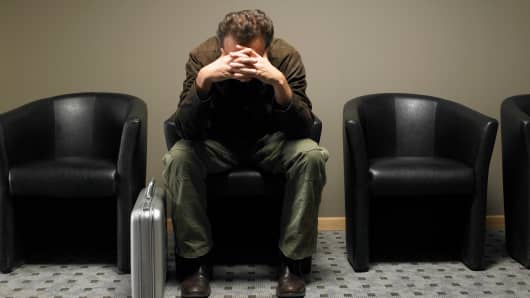With nearly a quarter million new jobs filled each month, it's a great time for most people to look for work.
Unless you're older and have been out of work for a while.
In that case, you can expect to spend a lot more time finding a job. And you can expect to earn less when you find one.
Those are some of the conclusions from a survey of long-term jobless works by AARP, which found that half of older workers—those between 45 and 70 years old—who have been out of work over the past five years are still not working.
"As the economy continues to recover and the unemployment rate falls, there are still far too many people struggling," said Debra Whitman, chief public policy officer for the AARP. "Many Americans want to work as long as possible but our survey confirms that, once unemployed, it can take a long time for older workers to find a quality job."
Some older workers give up. About a quarter of the long-term jobless in the survey said they've stopped looking and dropped out of the workforce altogether.
Many are taking pay cuts to get back to work. Of those in the survey who said they'd found work, half said they are earning less than in their last job.





